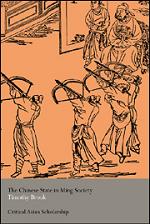 W
WAssassination, the murder of an opponent or well-known public figure, is one of the oldest tools of power struggles, as well as the expression of certain psychopathic disorders. It dates back to the earliest governments and tribal structures of the world.
 W
WThe Chinese State in Ming Society is a history book which investigates the role of the state in China in the Ming dynasty ; the interface between the state and society, and the effect of the state on ordinary people.
 W
WA constitutional convention is a gathering for the purpose of writing a new constitution or revising an existing constitution. Members of a constitutional convention are often, though not necessarily or entirely, elected by popular vote. However, a wholly popularly-elected constitutional convention can also be referred to as a constituent assembly.
 W
WIn expansionism, governments and states expand their territory, power, wealth or influence through economic growth, soft power, military empire-building or colonialism.
 W
WThe history of democracy in Mexico dates to the establishment of the federal republic of Mexico in 1824. After a long history under the Spanish Empire (1521-1821), Mexico gained its independence in 1821 and became the First Mexican Empire led by royalist military officer Agustín de Iturbide. Three years later, a federal republic was created under the Constitution of 1824. However, the republic was truncated by a series of military coups, most notably that of politician-general Antonio López de Santa Anna. Santa Anna held immense sway over the fledgling Mexican democracy until 1855, when he was ousted by liberal politicians.
 W
WMachiavellianism as a concept, or "popular discourse", in political history is a term for the political philosophy of the Italian Renaissance diplomat Niccolò Machiavelli. Machiavellian ideology is often depicted "as godless, scheming and self-interested". In discussions of Machiavelli's thought "Machiavellian" and "Machiavellianism" are often used in reasoned critiques, also in general usage the terms more often occur in political polemic, suggesting an unprincipled lust for power, achieved through "subtle policie, cunning roguerie", by the "Machiavel", an adherent of these principles. In this idea, as described by Isaiah Berlin, Machiavelli was regarded as "a man inspired by the Devil to lead good men to their doom, the great subverter, the teacher of evil, le docteur de la scélératesse, the inspirer of St. Bartholomew’s Eve, the original of Iago".
 W
WThe Origins of Political Order: From prehuman times to the French Revolution is a 2011 book by political economist Francis Fukuyama about what makes a state stable. It uses a comparative political history to develop a theory of the stability of a political system. According to Fukuyama, a stable state needs to be modern and strong, to obey the rule of law governing the state and be accountable.
 W
WIn medieval and early modern Europe, the term tenant-in-chief denoted a person who held his lands under various forms of feudal land tenure directly from the king or territorial prince to whom he did homage, as opposed to holding them from another nobleman or senior member of the clergy. The tenure was one which denoted great honour, but also carried heavy responsibilities. The tenants-in-chief were originally responsible for providing knights and soldiers for the king's feudal army.
 W
WThe Troubled Empire: China in the Yuan and Ming Dynasties is a history book about life and events in China in the Yuan and Ming dynasties, between the Mongol invasion of the Confucian empire in the 1270s and the invasion by the Manchu from the Eurasian Steppe, following extreme cold and drought in the 1630s.